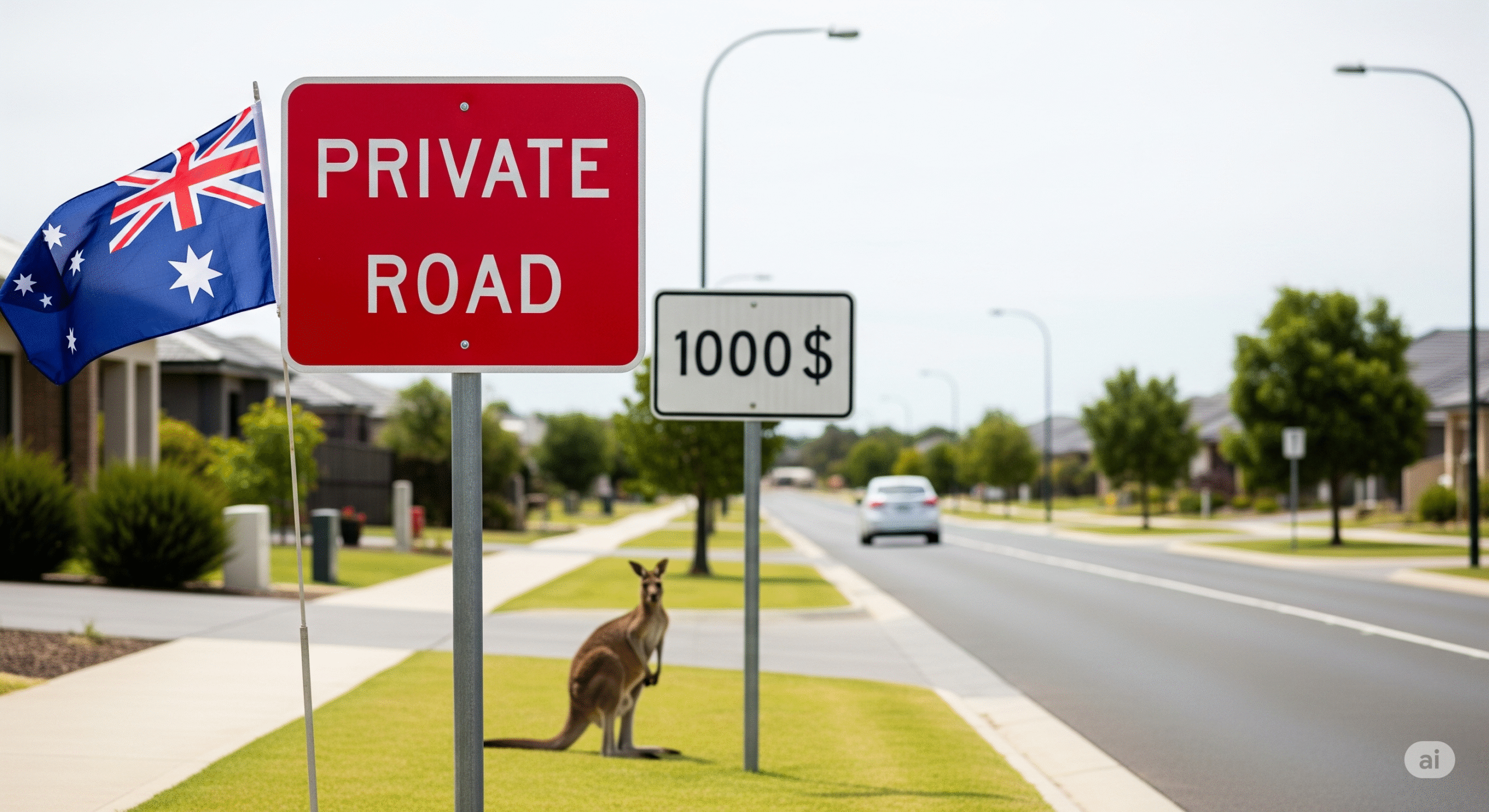You’ve probably seen signs for “private roads” or driven through a shopping center car park without thinking twice. After all, they’re not public roads, so the rules are different, right? Not exactly. A recent surge in fines and penalties has put a spotlight on a crucial but often misunderstood part of Australian road law: what happens when you drive on private property. The idea of a $1,000 fine for a simple mistake is shocking, but it’s a real possibility, and here’s what every driver needs to know to avoid a hefty penalty.
Private Property, Public Rules: The Legal Truth
While the roads themselves may be privately owned, that doesn’t mean you’re free to drive however you want. Australian law is moving toward holding drivers accountable for dangerous or illegal behavior, regardless of where they are. In many cases, if the public has access to the private property—like a supermarket car park, a private estate, or a school grounds—road rules can and do apply. This is a significant shift in thinking. Authorities are cracking down on everything from speeding and reckless driving to driving under the influence on private land, arguing that accidents and injuries can happen anywhere.
The $1,000 Penalty Explained
So, is the $1,000 fine a new, blanket rule for all private roads? The short answer is no, it’s not a new, universal law for a specific offense. Instead, the $1,000 figure is a possible fine for a variety of serious offenses that can now be enforced more strictly on private land. For instance, in some states, driving under the influence or other serious traffic offenses can carry fines well over $1,000. It’s a warning that the days of treating a private car park as a place to speed or act recklessly are over. The focus is on safety, and the penalties are designed to be a strong deterrent.
Here’s a quick comparison of penalties in different states:
| State | Rule on Private Roads | Common Offenses & Penalties |
| New South Wales | Publicly-accessible private property is subject to road rules. | Fines for negligent driving, drink driving, and reckless driving can apply. |
| Victoria | Road rules apply on all roads and tracks, including those in state forests. | Fines for illegal vehicle use and causing land damage. |
| Queensland | Private property owners can have vehicles towed for unauthorized parking. | Fines are not set by the state, but towing can cost up to $299.90. |
| Western Australia | Wheel clamping is banned. Vehicles can be towed for unauthorized parking. | Penalties are in place for towing rule violations by property owners. |
What Drivers Must Do to Stay Legal
To avoid a fine, the best strategy is simple: treat private roads and car parks with the same caution and respect you would a public street. This includes:
- Follow the signs: Obey speed limits, stop signs, and parking regulations.
- Be aware of your surroundings: Watch for pedestrians, children, and other vehicles.
- Do not drive impaired: Drink driving and drug driving laws can be enforced on private land.
- Park legally: If a car park has rules, follow them. If you’re not sure, park somewhere else.
Conclusion
The myth that driving on private land is a free-for-all is being busted across Australia. While a single, nationwide $1,000 fine for simply driving on a private road doesn’t exist, the penalties for offenses like dangerous driving and reckless behavior on these roads can be very real and very expensive. This push by authorities is a clear message: road safety is a priority everywhere. By staying vigilant and treating every road as if the same rules apply, you can avoid a costly fine and do your part to keep everyone safe.
